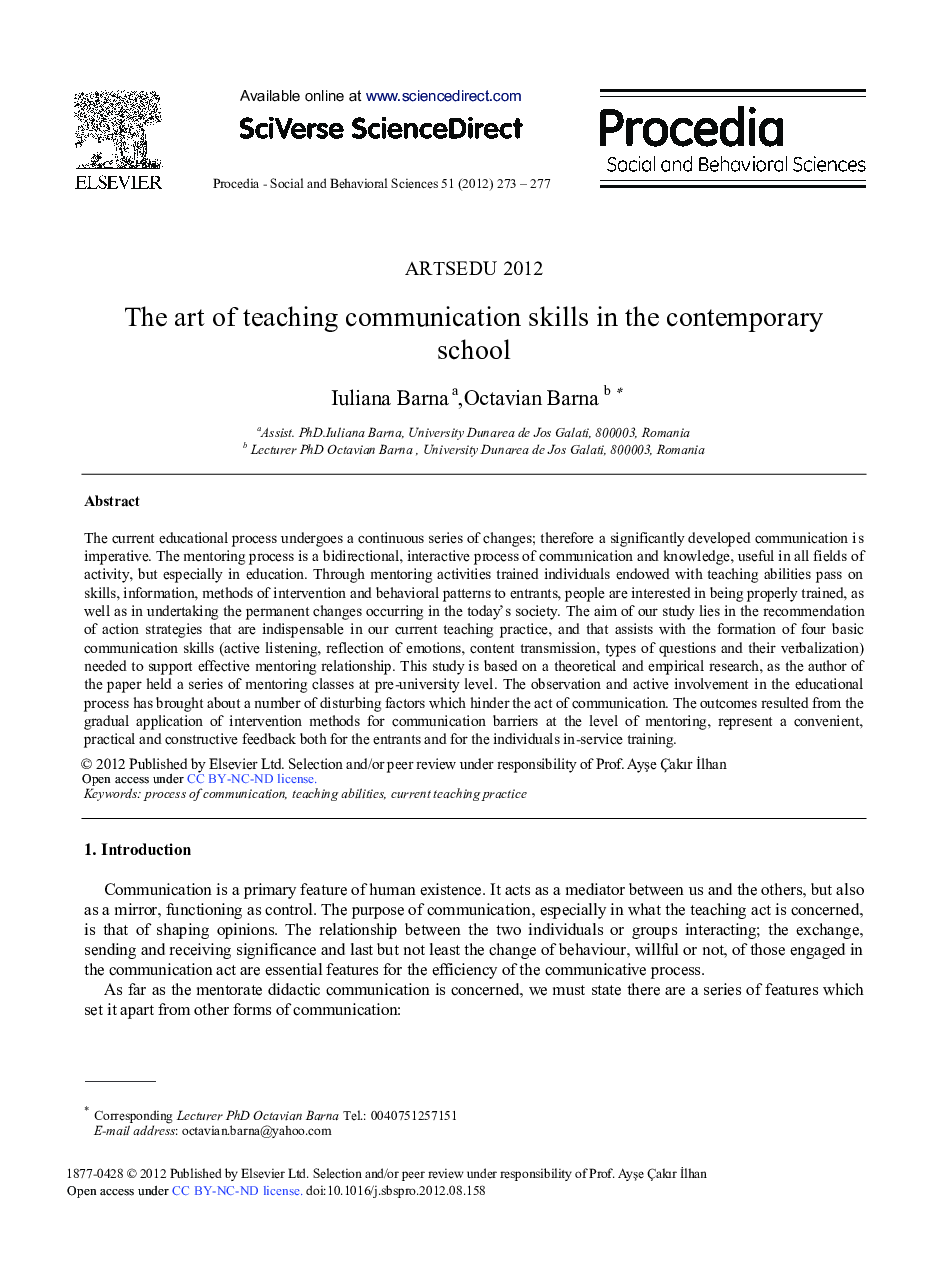| Article ID | Journal | Published Year | Pages | File Type |
|---|---|---|---|---|
| 1120988 | Procedia - Social and Behavioral Sciences | 2012 | 5 Pages |
The current educational process undergoes a continuous series of changes; therefore a significantly developed communication is imperative. The mentoring process is a bidirectional, interactive process of communication and knowledge, useful in all fields of activity, but especially in education. Through mentoring activities trained individuals endowed with teaching abilities pass on skills, information, methods of intervention and behavioral patterns to entrants, people are interested in being properly trained, as well as in undertaking the permanent changes occurring in the today's society. The aim of our study lies in the recommendation of action strategies that are indispensable in our current teaching practice, and that assists with the formation of four basic communication skills (active listening, reflection of emotions, content transmission, types of questions and their verbalization) needed to support effective mentoring relationship. This study is based on a theoretical and empirical research, as the author of the paper held a series of mentoring classes at pre-university level. The observation and active involvement in the educational process has brought about a number of disturbing factors which hinder the act of communication. The outcomes resulted from the gradual application of intervention methods for communication barriers at the level of mentoring, represent a convenient, practical and constructive feedback both for the entrants and for the individuals in-service training.
